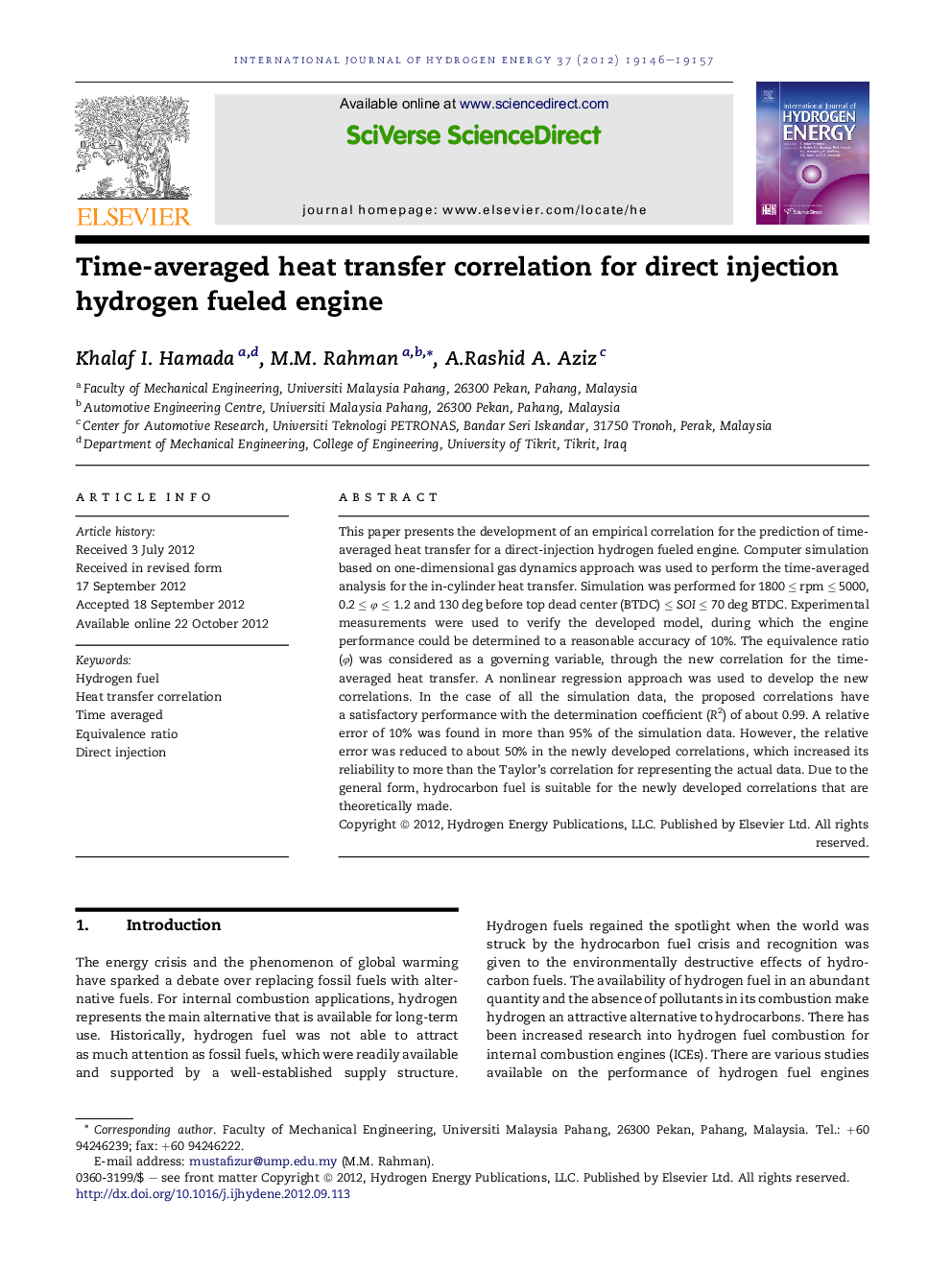| Article ID | Journal | Published Year | Pages | File Type |
|---|---|---|---|---|
| 1276123 | International Journal of Hydrogen Energy | 2012 | 12 Pages |
This paper presents the development of an empirical correlation for the prediction of time-averaged heat transfer for a direct-injection hydrogen fueled engine. Computer simulation based on one-dimensional gas dynamics approach was used to perform the time-averaged analysis for the in-cylinder heat transfer. Simulation was performed for 1800 ≤ rpm ≤ 5000, 0.2 ≤ φ ≤ 1.2 and 130 deg before top dead center (BTDC) ≤ SOI ≤ 70 deg BTDC. Experimental measurements were used to verify the developed model, during which the engine performance could be determined to a reasonable accuracy of 10%. The equivalence ratio (φ) was considered as a governing variable, through the new correlation for the time-averaged heat transfer. A nonlinear regression approach was used to develop the new correlations. In the case of all the simulation data, the proposed correlations have a satisfactory performance with the determination coefficient (R2) of about 0.99. A relative error of 10% was found in more than 95% of the simulation data. However, the relative error was reduced to about 50% in the newly developed correlations, which increased its reliability to more than the Taylor's correlation for representing the actual data. Due to the general form, hydrocarbon fuel is suitable for the newly developed correlations that are theoretically made.
► A one-dimensional gas dynamic simulation approach is developed. ► Evaluation of existing empirical heat transfer models. ► Exiting empirical models are not accurate for hydrogen. ► A new time averaged heat transfer (TAHT) correlation is developed for hydrogen. ► TAHT correlation gives realistic predictions than Taylor's correlation.
